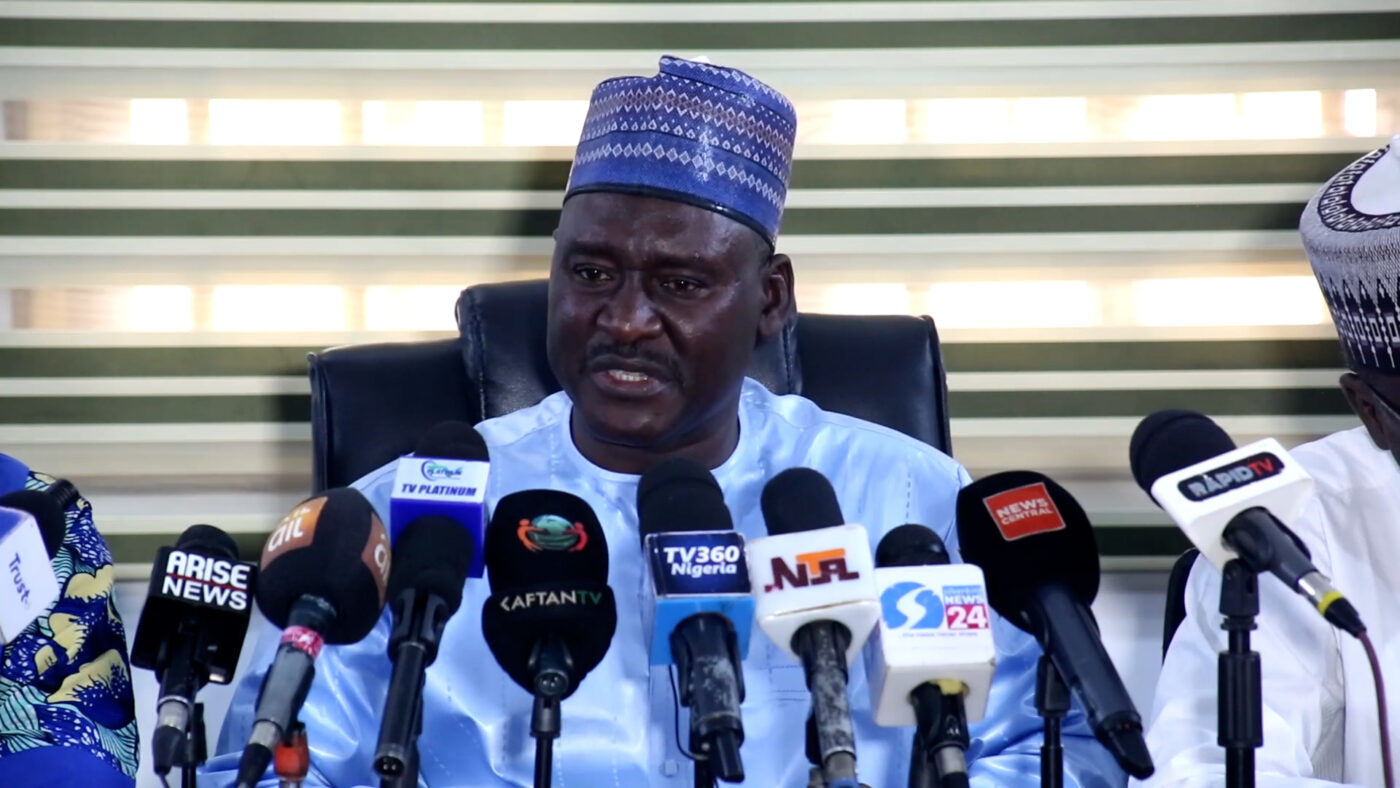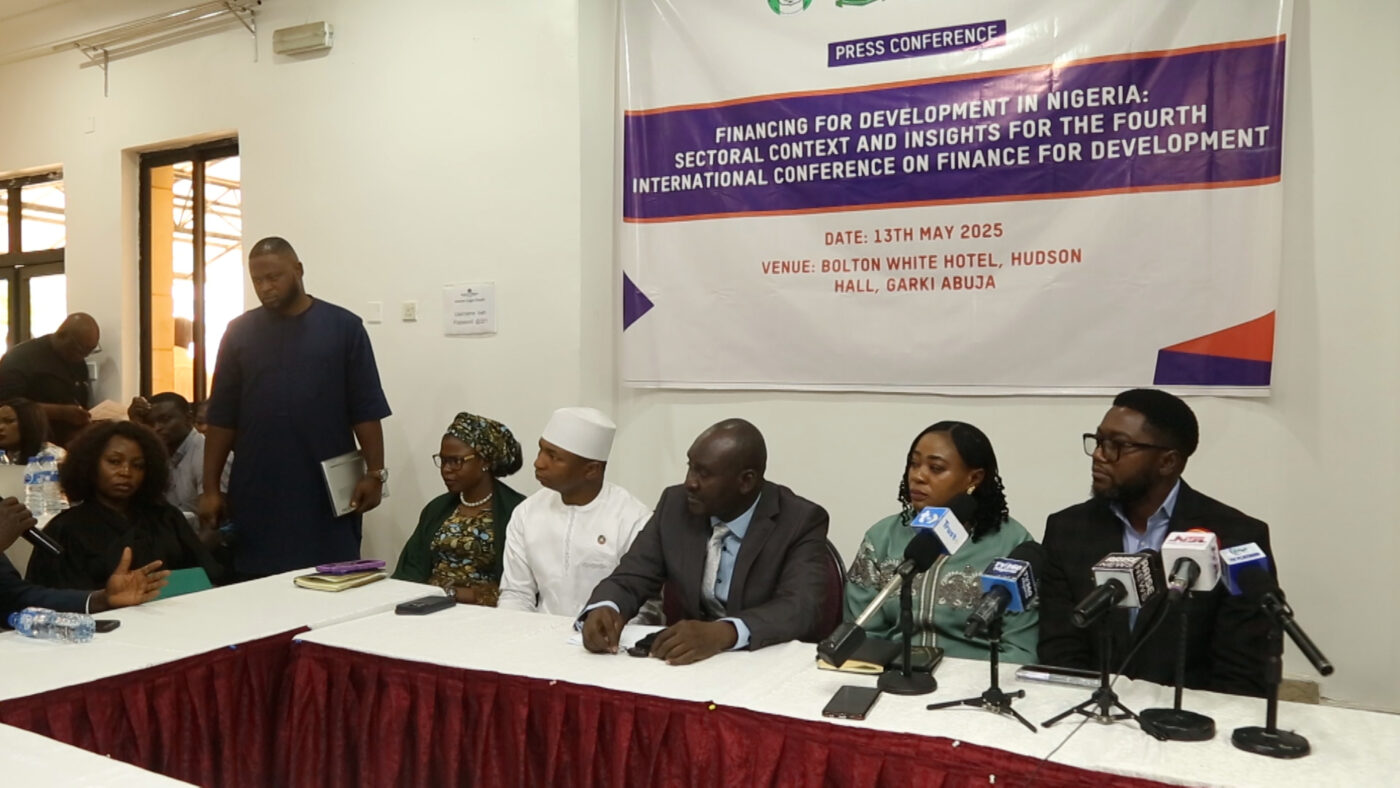A coalition of over 40 Civil Society Organizations (CSOs) focused on anti-corruption and good governance has called on the Supreme Court to dismiss a lawsuit filed by 16 Nigerian governors seeking to declare the Economic and Financial Crimes Commission (EFCC) and Nigerian Financial Intelligence Unit (NFIU) illegal.
Speaking at a press conference in Abuja on Wednesday, Auwal Musa Rafsanjani, Executive Director of the Civil Society Legislative Advocacy Centre (CISLAC), expressed deep concern over the governors’ legal action, describing it as a threat to the fight against corruption and an assault on local government autonomy.
“These legal battles show a blatant disregard for the rule of law and reflect an attempt to dismantle Nigeria’s progress in establishing institutions that hold public officials accountable,” Rafsanjani stated.
The coalition revealed that the lawsuit, which is scheduled for hearing on October 22, 2024, seeks to prevent the EFCC, NFIU, and other anti-corruption agencies from investigating the financial activities of state and local governments. The governors argue that these agencies lack the authority to issue directives concerning the administration and management of state resources.
A Subversion of Accountability
The coalition warned that the governors’ actions pose a serious threat to transparency and accountability. “This lawsuit sends a dangerous signal that political convenience can override efforts to safeguard public funds,” the CSOs emphasized.
Rafsanjani pointed out that the governors are relying on legal technicalities to challenge the legality of the EFCC—an institution established by Nigerian law and internationally recognized for its role in combating financial crimes for over two decades.
He stressed that the Nigerian Constitution explicitly supports the establishment of anti-corruption agencies. According to Section 15(5) of the Constitution, the state is mandated to “abolish all corrupt practices and abuse of power.” The coalition also highlighted that Section 7 of the Constitution guarantees local government autonomy, which the governors are allegedly trying to undermine through the lawsuit.
“The governors are claiming that the EFCC Act did not receive approval from state Houses of Assembly,” Rafsanjani explained. “However, the EFCC is not a treaty—it is a law enacted to address corruption, which is a national issue. The Constitution grants the federal government the authority to legislate on corruption, which affects all tiers of government.”
Risk of Crippling Anti-Corruption Efforts
The coalition expressed concern over the potential fallout if the governors’ lawsuit succeeds, warning that it could cripple Nigeria’s anti-corruption efforts. “If this suit prevails, it will significantly weaken the fight against corruption and could result in Nigeria being blacklisted by international organizations,” they cautioned.
The coalition cited the Financial Action Task Force (FATF), which placed Nigeria on its grey list in 2023 due to concerns about the country’s commitment to combating money laundering.
The Role of Anti-Corruption Agencies
The CSOs underscored the vital role agencies like the EFCC play in Nigeria’s efforts to combat corruption, recover stolen public funds, and restore public trust. “The EFCC has been instrumental in securing numerous convictions and recovering billions of naira in stolen funds,” Rafsanjani noted.
The timing of the lawsuit, according to the coalition, raises suspicions about the governors’ motives. “This legal action appears to be a deliberate attempt to shield public officials from scrutiny and to obstruct investigations into the mismanagement of public resources at the subnational level,” they said.
A Call to Action
The coalition called on Nigerians to remain vigilant and oppose any efforts aimed at weakening institutions that promote accountability. “A nation without accountability is on a path toward moral and economic decline,” Rafsanjani warned.
The CSOs urged the Supreme Court to dismiss the lawsuit, describing it as “frivolous” and a serious threat to Nigeria’s democratic principles. “This lawsuit not only undermines the rule of law but also jeopardizes the foundations of good governance. It must not be allowed to stand,” the coalition concluded.




